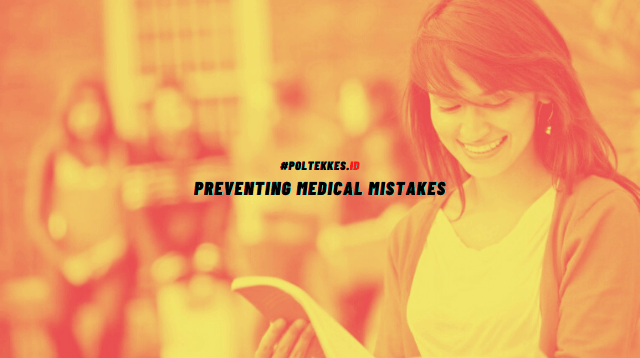Medical mistakes continue to be a significant cause of preventable deaths within the United States. While death is the most tragic outcome, medical mistakes cause other problems such as permanent disabilities, extended hospital stays, longer recoveries, and even additional treatments.
Medical Mistakes
Medical mistakes and their consequences also add significantly to the overall cost of healthcare. Hospitals and healthcare providers are being held accountable for the quality of care and reduction in medical mistakes by their accrediting bodies.
You can also improve the quality and safety of your own health care and that of your family members by learning more about and understanding your risks.
Take these simple steps:
Ask questions if you have doubts or concerns.
- Ask questions and make sure you understand the answers.
- Choose a doctor with whom you feel comfortable talking.
- Take a relative or friend with you to help you take notes, ask questions and understand answers.
Keep and bring a list of all the medications you take.
- Bring the actual medications or give your doctor and pharmacist a list of all the medications and dosage that you take, including non-prescription (over-the-counter) medications and nutritional supplements.
- Tell your doctor and pharmacist about any drug, food and other allergies you have such as to latex.
- Ask about any risks or side effects of the medication and what to avoid while taking it. Be sure to write down what your doctor or pharmacist says.
- Make sure your medications what the doctor ordered. Ask the pharmacist about your medication if it looks different than you expected.
- Read the label and patient package insert when you get your medication, including all warnings and instructions.
- Know how to use your medication. Especially note the times and conditions when your medication should and should not be taken.
- Contact your doctor or pharmacist if you have any questions.
- Understand both the generic and the brand names of your medication. This helps ensure you do not receive double dosing from taking both a generic and a brand. It also helps prevent you from taking a medication to which you are allergic.
Get the results of any test or procedure.
- Ask when and how you will get the results of tests or procedures. Will it be in person, by phone, mail, through the Plan or Provider’s portal?
- Don’t assume the results are fine if you do not get them when expected. Contact your healthcare provider and ask for your results.
- Ask what the results mean for your care.
Talk to your doctor about which hospital or clinic is best for your health needs.
- Ask your doctor about which hospital or clinic has the best care and results for your condition if you have more than one hospital or clinic to choose from to get the health care you need.
- Be sure you understand the instructions you get about follow-up care when you leave the hospital or clinic.
Make sure you understand what will happen if you need surgery.
- Make sure you, your doctor, and your surgeon all agree on exactly what will be done during the operation.
- Ask your doctor, “Who will manage my care when I am in the hospital?”
- Ask your surgeon: – “Exactly what will you be doing?”- “About how long will it take?”- “What will happen after surgery?”- “How can I expect to feel during recovery?”
- Tell the surgeon, anesthesiologist, and nurses about any allergies, bad reaction to anesthesia, and any medications or nutritional supplements you are taking.
Preventable Healthcare Acquired Conditions (“Never Events”)
When you enter the hospital for treatment of one medical problem, you do not expect to leave with additional injuries, infections, or other serious conditions that occur during the course of your stay.
Although some of these complications may not be avoidable, patients do suffer from injuries or illnesses that could have been prevented if doctors or the hospital had taken proper precautions.
Errors in medical care that are clearly identifiable, preventable and serious in their consequences for patients, can indicate a significant problem in the safety and credibility of a health care facility. These conditions and errors are sometimes called “Never
Events” or “Serious Reportable Events.”
We have a benefit payment policy that encourages hospitals to reduce the likelihood of hospital-acquired conditions such as certain infections, severe bedsores, and fractures, and to reduce medical errors that should never happen. When such an event occurs, neither you nor your FEHB plan will incur costs to correct the medical error.
READ! Car Insurance, Your Policy Wording
Providers are expected to waive all costs associated with the medical error. Participating providers may not bill or collect payment from United Health care members for any amounts not paid due to the application of this reimbursement policy.









